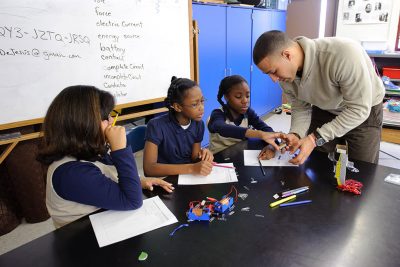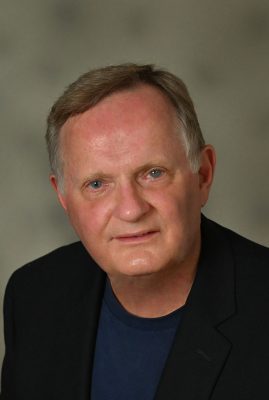
Editor’s Note: The following story originally appeared on UConn Today.
The University of Connecticut has been awarded a $5 million grant from the U.S. Department of Education’s Institute of Education Sciences to examine and strengthen gifted education opportunities for underserved populations through four studies. UConn’s National Center for Research on Gifted Education (NCRGE) will investigate strategies for recognizing and responding to untapped talent and explore the outcomes of gifted education services.
Del Siegle, the Lynn and Ray Neag Endowed Chair for Gifted Education and Talent Development in the Neag School of Education, will direct this five-year project in collaboration with other researchers at UConn and scholars from the University of California Berkeley, the University of California Santa Cruz, the University of Iowa, Michigan State University, and the University of Wisconsin Whitewater. In addition to Siegle, the UConn research team includes D. Betsy McCoach, E. Jean Gubbins, Catherine Little, Daniel Long, and Christopher Rhoads.
“The only way our country will reach its full potential is if every student has an opportunity to reach their potential.”
— Del Siegle, Lynn and Ray Neag Endowed Chair for Gifted Education and Talent Development
Gifted education encompasses a variety of talent development practices used to support students who have been identified as gifted and talented. These practices provide challenging and stimulating experiences designed to enhance and accelerate student learning.
However, research conducted at UConn and elsewhere has shown gifted education programs often are plagued by widespread inequality and inaccessibility. Because of factors such as students’ socioeconomic status, race, and English-speaking skills, many students’ talents go unrecognized, and many schools fail to provide appropriate educational experiences. This can further perpetuate cultural and economic inequalities.

“The only way our country will reach its full potential is if every student has an opportunity to reach their potential,” says Siegle. “This research will move us toward providing improved educational opportunities for students traditionally underrepresented in gifted programs.”
Currently, there is no universally accepted screening process for the identification of students for gifted services. Identification processes vary from state to state and even from school district to school district within some states. Many school districts use a nomination process through which teachers refer individual students, though evidence suggests teachers overlook many talented students.
A universal screening process in which all students are evaluated can improve equitable identification and increase access for students from underserved groups. However, having every student complete assessments can be expensive.
To improve identification systems, the researchers will investigate how to streamline screening processes while also increasing the number of underserved students being identified for gifted programs. This will include searching for ways to reduce the cost of these processes.
Additionally, the team will conduct a study to investigate the long-term benefits of gifted education beyond academic achievement and also a study to explore the effects teachers have on students’ academic successes.
A final study focuses on expanding the use of academic acceleration, the process of placing students in more advanced-level learning experiences that match their skill set.
Presently, schools often refrain from accelerating students. The research team will tackle this issue by developing and testing a universal screening process for acceleration that includes professional learning sessions and online training modules for educators and parents.
Results from these four studies will be disseminated to the public through the NCRGE website, blog, social media, and online training platforms.
Siegle and his team will also intensify and expand training of researchers by holding an advanced training research institute at UConn for professors working in gifted education.
Siegle received his B.S. in elementary education and his M.Ed. in curriculum from Montana State University-Billings and his Ph.D. in special education from UConn. Currently, Siegle resides as the Director of the National Center for Research on Gifted Education.
 Facebook
Facebook
 Twitter
Twitter
 LinkedIn
LinkedIn
